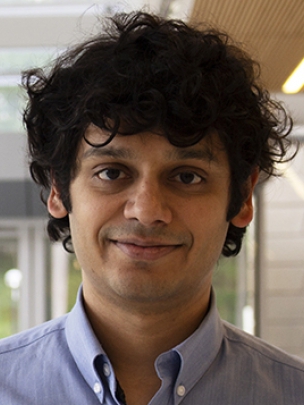November 01, 2019 – 11:15 AM
TSRB Auditorium

Ram Vasudevan
University of Michigan
Abstract
Autonomous systems offer the promise of providing greater safety and access. However, this positive impact will only be achieved if the underlying algorithms that control such systems can be certified to behave robustly. This talk will describe a pair of techniques grounded in infinite dimensional optimization to address this challenge. The first technique, which is called Reachability-based Trajectory Design, constructs a parameterized representation of the forward reachable set, which it then uses in concert with predictions to enable real-time, certified, collision checking. This approach, which is guaranteed to generate not-at-fault behavior, is demonstrated across a variety of different real-world platforms. The second technique, is a polynomial optimization method that allows one to compute globally optimal solutions in real-time in the presence of hundreds of constraints. The utility of this approach is validated on a real-time trajectory design task for an autonomous ground vehicle.
Biography
Ram Vasudevan is an assistant professor in Mechanical Engineering and the Robotics Institute at the University of Michigan. He received a BS in Electrical Engineering and Computer Sciences, an MS degree in Electrical Engineering, and a PhD in Electrical Engineering all from the University of California, Berkeley. He is a recipient of the NSF CAREER Award and the ONR Young Investigator Award. His work has received best paper awards at the IEEE Conference on Robotics and Automation, the ASME Dynamics Systems and Controls Conference, and IEEE OCEANS Conference.